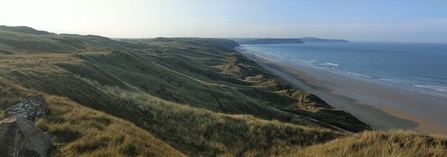Last week, MPs rejected Amendment 40 (formerly Amendment 130) - a change that would have ensured stronger, evidence-based safeguards for wildlife and protected sites.
This is a big setback for nature in Cornwall.
The Bill now heads back to the House of Lords, where there is still a chance to put vital protections back in place.
Please write to your MP again. Urge them to support these nature-friendly amendments.





